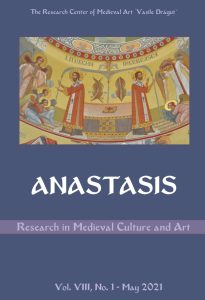The Roman Catholic Liturgy and Its Role in the Composer's Missa Formation
The Roman Catholic Liturgy and Its Role in the Composer's Missa Formation
Author(s): Olena Georhiyivna Roshchenko, Nataliya Byelik-ZolotaryovaSubject(s): Christian Theology and Religion, Music, History of Church(es), Middle Ages, Pastoral Theology, History of Art
Published by: Editura ARTES
Keywords: medieval liturgy; composer's missa; supragenre memory; ordinarium; antiphonary; mass; mission;
Summary/Abstract: A number of interdependent problems was solved in this study: the missa concept meanings’ system definition in the context of the Roman Catholic liturgy; the order of the missa’s musical sections in the liturgy’s structure; the invariant-variant nature of the Gregorian Masses; the theological and musical preconditions for the composer’s mass genesis. The purpose of the study is the liturgical context of the composer's mass determination as a musical genre and a subject for a musicological analysis. It is stated that missa’s range of meanings extends from the word to the liturgy analogue and from the sequence of musical and verbal parts, divided by the rite actions, to the antiphonary where they are present without verbal sacred “insertions”; from the liturgy to the composer’s genre as an entire cyclical artistic phenomenon of authorial origin. The Roman Catholic liturgy equal to the missa, and the missa as an extra-liturgical phenomenon of the composer’s creativity have a different number of musical sections. In the Gregorian Mass, in the Antiphonary’s composition as an obligatory component of the liturgy, the imitation of the canon presented in eighteen musical versions of sacred monophonic singing dominates. In the composer's missa, the distancing from the liturgical source has led to its free interpretation, as well as to the changes in its purpose, location, target audience, words and music interaction. It is the place of the missa’s musical sections in the liturgical action that is determined here. While the church mass is not entirely musical, the composer's missa is based exclusively on a musical drama. The logic of a change from one section of the musical missa to the next is due to the development of the liturgical action. The cyclical nature as a principle of form and content formation is inherited by the composer's missa from the liturgical prototype.
Journal: Anastasis Research in Medieval Culture and Art
- Issue Year: VIII/2021
- Issue No: 1
- Page Range: 39-50
- Page Count: 12
- Language: English

